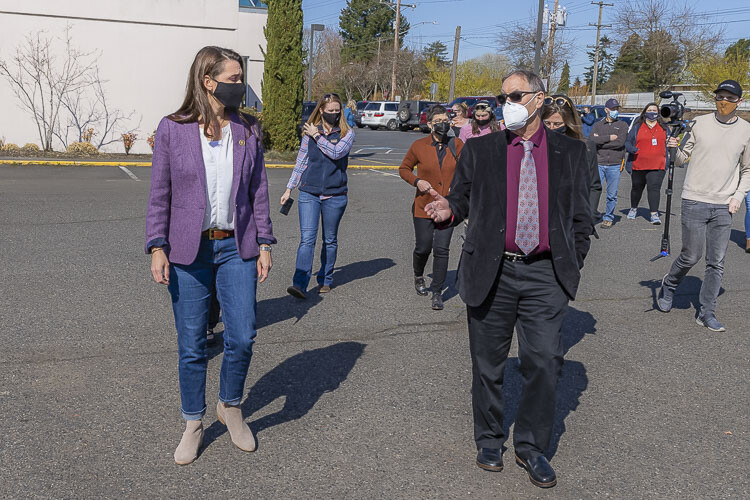‘Contrary to the accepted thought that fewer people are dying’

Art Moore
WND News Center
A study comparing data between counties in Kansas found that those that mandated masks for COVID-19 had a higher rate of death than those that did not.
The author, German physician Zacharias Foegen, chose Kansas because that state allowed each of its 105 counties to decide whether or not to require masks. A total of 81 counties decided not to implement the measure.
The paper published by the journal Medicine, “The Foegen Effect: A Mechanism by Which Facemasks Contribute to the COVID-19 Case Fatality Rate,” concluded that “contrary to the accepted thought that fewer people are dying because infection rates are reduced by masks, this was not the case,” National File reported.
“Results from this study strongly suggest that mask mandates actually caused about 1.5 times the number of deaths or ∼50% more deaths compared to no mask mandates.”
The study suggested a rationale for the increased risk ratio. Virions – the infective form of the virus outside the cell – “that enter or those coughed out in droplets are retained in the facemask tissue, and after quick evaporation of the droplets, hypercondensed droplets or pure virions (virions not inside a droplet) are re-inhaled from a very short distance during inspiration.”
The author’s theory, dubbed the “Foegen effect,” is that the masks make the COVID-19 virions smaller, allowing them to spread deeper into the respiratory tract.
“They bypass the bronchi and are inhaled deep into the alveoli, where they can cause pneumonia instead of bronchitis, which would be typical of a virus infection.”
Foegen concluded: “These findings suggest that mask use might pose a yet unknown threat to the user instead of protecting them, making mask mandates a debatable epidemiologic intervention.”
COVID-19 data collected by the New York Times shows that the mandates had no impact on case rates. The Manhattan Institute’s City Journal published a graph based on that data comparing the cases in the 11 states that never mandated masks with the 39 that did.
White House coronavirus adviser Dr. Anthony Fauci, in fact, told then Health and Human Services Secretary Sylvia Burwell in a February 2020 email that masks “are really for infected people to prevent them from spreading infection to people who are not infected rather than protecting uninfected people from acquiring infection.”
“The typical mask you buy in the drug store is not really effective in keeping out virus, which is small enough to pass through material. It might, however, provide some slight benefit in keep out gross droplets if someone coughs or sneezes on you,” wrote the director of the National Institute of Allergy and Infectious Diseases.
“I do not recommend that you wear a mask, particularly since you are going to a very low risk location,” Fauci stated.
Similarly, Fauci spoke out against universal masking amid a pandemic in a “60 Minutes” interview on month later. He warned of “unintended consequences,” saying there’s “no reason to be walking around with a mask” in “the middle of an outbreak.”
Fauci later said he told Americans they didn’t need to wear a mask because he wanted to ensure there was enough supply for frontline workers.
However, at the time of his interview, the executive director of the World Health Organization health emergencies program, Dr. Mike Ryan, said there was “no specific evidence to suggest that the wearing of masks by the mass population has any potential benefit.”
“In fact, there’s some evidence to suggest the opposite in the misuse of wearing a mask properly or fitting it properly,” he said.
The WHO at the time recommended people not wear face masks unless they are sick with COVID-19 or caring for someone who is sick.
In March 2020, the CDC also said masks “are usually not recommended” in “non-health care settings.”










Here again.. been saying this since day one. Its about power and control. Absolutely nothing to do with public health. Is anyone getting it yet?
Beutler has become such a swamp clown. I have zero respect for her. She cannot think critically.
This study is seriously flawed in its analysis, failing to control for differences in the number of COVID cases between counties or differences in healthcare between counties. Other studies that have controlled for these differences come to the exact opposite conclusion.